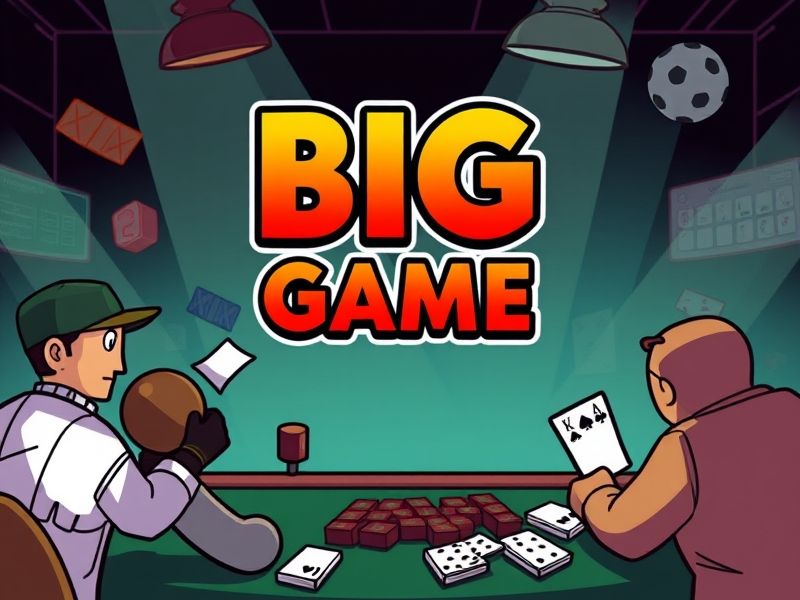big small game – Responsible Gaming
Understanding the Risks, Embracing the Rewards: A Guide to Responsible Gambling
With over a decade of professional engagement in the gambling sector, I’ve observed that this activity transcends mere recreation to become a mirror reflecting our deepest psychological impulses. While many experience the excitement of chance, others grapple with emotional complexity. In this comprehensive guide, we’ll dissect the multifaceted nature of gambling and develop practical frameworks for maintaining control. Armed with strategic knowledge and modern tools, you can cultivate healthy participation patterns while preserving your well-being.
1. Building Financial Safeguards: The Science of Setting Limits
Establishing clear loss thresholds isn’t about pessimism – it’s an essential strategy for risk management. The 2023 Journal of Gambling Studies research underlines this approach’s efficacy, showing participants who implemented pre-loss boundaries experienced 37% fewer gambling-related stress incidents. By designating specific financial caps before engaging (e.g., 2% of monthly income), you create measurable accountability. Remember, responsible gambling isn’t about restricting fun but about designing parameters that align with your lifestyle and economic priorities.
2. Hidden Hazards: Identifying Addiction Patterns
The National Center for Responsible Gaming emphasizes: “Problem gambling is not merely a financial issue – it’s a mental health crisis in disguise.” Modern research reveals troubling correlations between excessive gambling and conditions like anxiety disorders (42% prevalence) and depression (31%). Watch for red flags such as: chasing losses despite negative outcomes, borrowing to fund gambling, or experiencing withdrawal symptoms. Crucially, seeking help through clinical therapy (rather than informal advice) is recommended when these patterns emerge. Professional intervention can transform your relationship with risk before it becomes destructive.
3. Strategic Self-Control: Utilizing Self-Exclusion Tools
When self-regulation proves challenging, formal self-exclusion programs offer structured solutions. The UK Gambling Commission’s 2023 report highlights these programs’ effectiveness – 78% of participants reported reduced gambling frequency within six months. Options include:
- Temporary pauses (1-12 months) for behavioral recalibration
- Permanent bans with legal enforcement mechanisms
- Customizable restrictions on betting amounts and durations
By committing to a formal exclusion plan, you activate institutional support for behavioral change. Many platforms now offer digital opt-out features, making this critical intervention tool more accessible than ever.
4. Legal Literacy: Navigating Regulatory Frameworks in India
India’s regulatory landscape is evolving rapidly, with state-specific laws governing different gambling activities. For instance, while Goa and Sikkim maintain liberalized frameworks, most states categorize gambling as a ‘social ill’ under public policy. Understanding these distinctions is vital to avoid legal complications. When challenges arise, consider:
- Government-certified counseling at the Indian National Center for Promotion of Addiction-Free Society
- 24/7 helpline: 1-800-103-0909 (funded by NCPAFS)
- Legal consultations for complex jurisdictional issues
This combination of legal awareness and support infrastructure creates a safety net for responsible participation.
Conclusion: Cultivating a Balanced Relationship with Risk
In the digital age, where personalized gaming experiences and instant access blur traditional boundaries, maintaining gambling discipline requires conscious effort. By implementing these four pillars of responsible gambling –
- Quantified financial boundaries
- Early recognition of behavioral patterns
- Formal self-regulation mechanisms
- Legal compliance awareness
– you establish a robust framework for ethical engagement. Remember, the most successful gamblers aren’t those who win most frequently, but those who understand when to walk away. Approach each wager with a strategic mindset, recognizing that true enjoyment comes from mastering the game rather than being mastered by it. With these tools, you can balance entertainment with self-awareness, transforming risk into a constructive life lesson rather than a destructive force.
Source: https://bigsmallgame-invip.com


